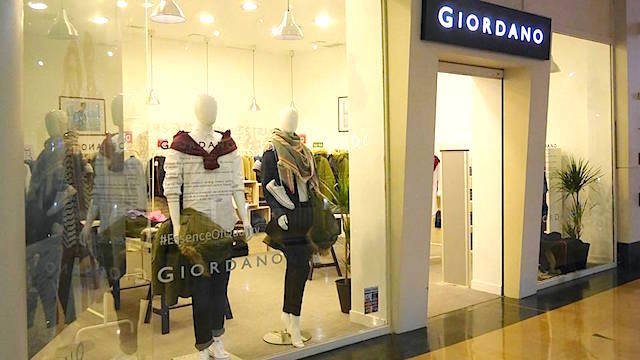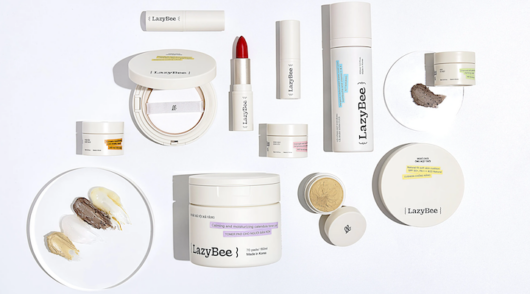Weakened currencies in Southeast Asia plus the closure of non-performing stores have hit sales and profits for Hong Kong fashion brand Giordano International.
The apparel retailer says it achieved consolidated group sales of HK$2.532 billion (US$326 million) in the six months to June 30, 7 per cent down on the same period last year.
In China, sales fell by 10 per cent because of slower economic growth, an unusually cool spring and the closure of non-performing stores. The company believes that proactive supply-chain management, heightened marketing efforts and more simple product designs will help improve sales going forward. Its sales sales growth in e-business has continued to outperform physical stores.
Under the core Giordano brand, 76 per cent of sales came from menswear and 24 per cent from womenswear. As well as selling through multi-brand stores, the company says it had 46 profitable womenswear counters in China and Thailand at June 30.
Sales volume was down by 7 per cent overall, mainly because of non-performing stores being closed, particularly in China, and lower wholesale sales to overseas franchisees. In the past 12 months the company has closed 32 stores. Directly operated stores decreased by 75, mainly street stores, while franchised stores increased by 43.
“This was in line with an ongoing initiative to exit non-performing high-rent stores,” says the company, plus expansion in department stores and a strategic focus to expand the franchise network to third- and fourth-tier cities.
Meanwhile, eCommerce sales made up 16 per cent of sales on the mainland (12 per cent the previous period).
Budget brand
Overall profitable, budget brand Beau Monde had 16 stores at the end of the six months. More price-competitive products will be launched under that label in the coming seasons.
Sales in Hong Kong and Macau eased 5 per cent, mainly because of high-rent stores being closed last year. “Management is evaluating the economics of prime locations, and planning to open new stores when their occupancy costs return to reasonable level.”
Taiwan’s subdued economy weakened consumer sentiment. The company added 10 stores in the past 12 months, but they failed to deliver expected sales. The price and product mix is under review.
Weakened currencies in the rest of Asia Pacific resulted in higher product costs, hitting profit.
Wholesale sales fell 28 per cent to $142 million. The company believes its wholesale markets, particularly its South Korean JV, will begin to replenish inventory levels.
Sustainable growth in brand sales and a 9 per cent increase in wholesale markets have been registered in Japan, Myanmar, the Philippines and Vietnam. These markets saw double-digit expansion of retail space in the past 12 months.
“Management holds the view that regional economic environments are not conducive to profitable large-scale expansion in the medium term,” says the company. “We will focus on efficiencies by operational improvements and prudent investments.
“Management is also looking for new markets where the group brands do not yet have a presence.”






